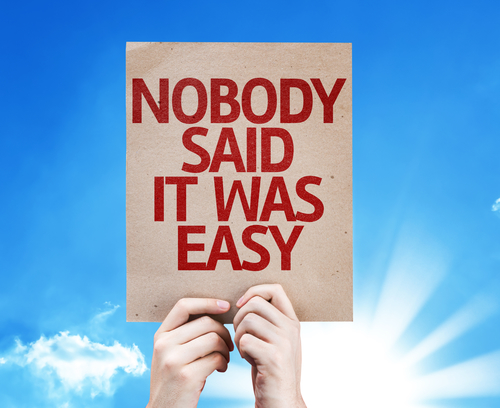
Thank you G-d for afflicting me, please hit me again!
Said no one ever! Or maybe they did. There is a sentiment among certain religious groups to preach the idea that suffering is good, should be welcomed and thanked for. To be fair these are fundamental Jewish values as well and can all be sourced to the Midrash, Talmud and other good sources. But to say thank you?
Let me put the subtle distinction in context.
We all face challenges in life. When we experience challenge in life the growing person looks at the challenge and finds lessons to learn, ways to grown from the experience. Sometimes, the challenges give birth to revealed blessings in our lives that are transformative. When looking back at the challenge we may be grateful that we went through it, because the positive that we arrived at outweighed the negative.
What we are really saying is thank you G-d for the good that we have come to experience, not, thank you G-d for the bad/negative/challenge itself. Therefore, if we could get to the blessing without the pain, wouldn’t we rather that? Wouldn’t we want to arrive at the good without the bad?
The reality is that life doesn’t work that way. Life is filled with challenge and challenge brings blessing. Darkness comes before light – “and it was evening and it was day…”.
Imagine however, if we could actually see the blessing in the darkness itself? Imagine if we could truly see the world from G-d’s vantage point to understand how the blessing is not only in the positive outcome but in the challenge and suffering itself? That would truly be Messianic!
In fact the Prophet when prophesying about the Messianic era, says as much; “Odcho Hashem Ki Unafta Bi – Thank you G-d for afflicting me”. The Prophet is telling us that when Moshiach comes, we will have the ability to see the world (to some extent) as it is from G-d’s vantage point. We will then be able to see the suffering for what it is.
These are important Jewish values to contemplate during this three week period when we mourn the destruction of Jerusalem, the representation of collective and individual Jewish suffering.
Notwithstanding the aforementioned, because we remain Human Beings in the pre-Messianic era, we don’t yet have those eyes. As such, we can never become callous to the suffering of others or to wish suffering upon ourselves.
In fact, I recall hearing the Rebbe quoting the verse above and as he was reciting the verse, he emitted a deep cry. I believe representing the perspective we ought to have now until Moshiach’s coming.
May that be speedily in our days, amen!
